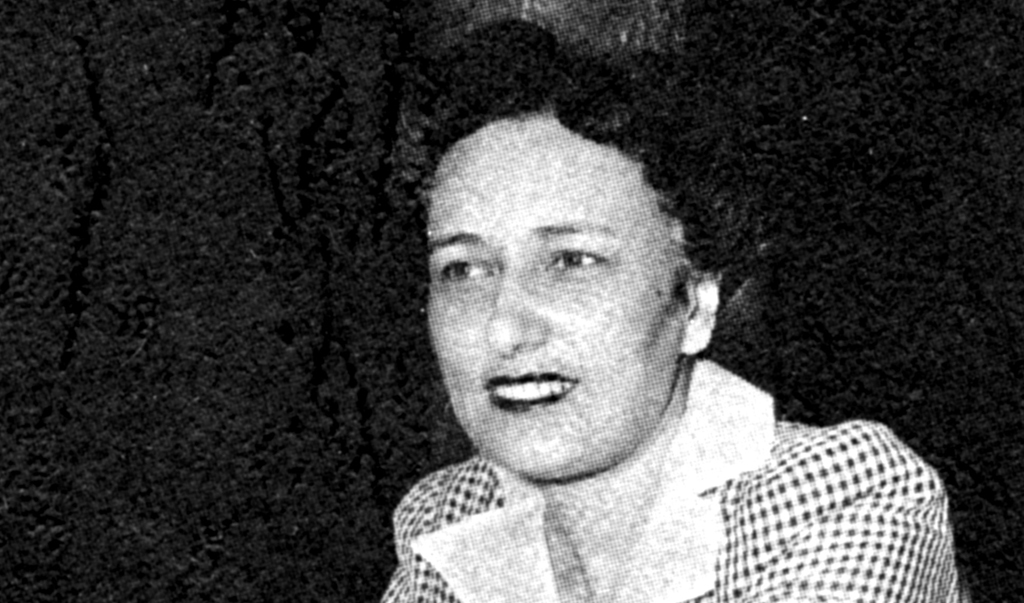MLB
Effa Manley, Cooperstown’s 1 Female Inductee, Was a Civil Rights Champion

Ask a sports fan to name two women who’ve owned baseball teams and the answer you might get would be Rachel Phelps and Marge Schott, with no one thinking to mention Effa Manley.
Phelps was the fictional owner of the Cleveland Indians in Major League. Schott was the stranger-than-fiction owner of the Cincinnati Reds in real life. Neither could measure up to Manley’s accomplishments in baseball.
Effa Manley was inducted into Cooperstown in 2006
The walls of the National Baseball Hall of Fame are lined with plaques telling the stories of the enshrined members. Most are players, with a few managers, umpires, and executives mixed in. And all are men, with one exception: Effa Manley.
Breaking the Cooperstown gender barrier by being inducted posthumously in 2006 was completely appropriate for Manley. After all, she was one of the figures who made strides in setting the table as Jackie Robinson broke the color barrier in Major League Baseball.
Manley was one of 17 baseball figures selected for the Hall of Fame by a special committee examining candidates from the Negro Leagues and pre-Negro Leagues. Her background in the sport included co-owning a team and serving as the treasurer of the Negro National League, all the while pushing to give some of the sport’s great talents their opportunity to play in the majors as well as acceptance in their communities.
Along those lines, she accepted less than market value when MLB owners like Bill Veeck approached her to purchase the contracts of her team’s stars, knowing that those players would be on a path to earn more money and potentially play in the majors – which became realistic once Jackie Robinson wore a Brooklyn Dodgers uniform for the first time.
People thought they knew her but really didn’t
RELATED: MLB Draft: The 5 Lowest Picks to Make the Baseball Hall of Fame
The people working with and for Effa Manley when she co-owned the Newark Eagles with her husband Abe might have enjoyed the irony of her story: The woman who worked tirelessly on behalf of the Negro Leagues and their players was always assumed to be black but actually wasn’t.
Effa Manley was born to Philadelphia seamstress Bertha Brooks in 1897, but her father wasn’t the black man to whom Brooks was married. Rather, her father was a wealthy white man who employed Brooks. But given the makeup of the household with four half-brothers and sisters and of the neighborhood, the assumption was that Manley was black.
That perception was reinforced by her marriages over the years to four black men. The second marriage was to Abe Manley, who soon afterward launched the Brooklyn Eagles of the Negro National League in 1935. The franchise’s all-time roster was rich in talent, including Monte Irvin, Ray Dandridge, and Larry Doby, who would go on to crack the American League’s color barrier with the Cleveland Indians.
The Eagles, who played home games at Ebbets Field in their first season before moving to Newark, New Jersey, won the Negro Leagues World Series in 1946, the year before the Dodgers promoted Jackie Robinson to the majors.
Over the years, she took on increased responsibilities operating the team as well as helping the league present a more professional appearance by encouraging teams to play in better facilities, pay players more, and promote their games.
An influential woman beyond baseball
RELATED: Why Don Mattingly’s Poorly Timed MLB Career Never Got Him Into the Hall of Fame
In addition to her work in baseball, Effa Manley was involved in charitable work and the war effort during World War II. She also came to be known as a civil rights crusader who effectively organized boycotts of businesses that refused to employ black workers for anything other than menial tasks.
The Manleys sold the Newark Eagles after the 1948 season, and Abe Manley died in 1952. Effa Manley married twice more, with neither relationship lasting long.
She spent her later years on projects to preserve Negro Leagues history and gain recognition for star players from the Hall of Fame and Major League Baseball. Her work helped lead to the Hall of Fame forming its first special committee on the Negro Leagues. It met from 1971-77 and resulted in nine players being enshrined in Cooperstown.
Manley died in 1981.











